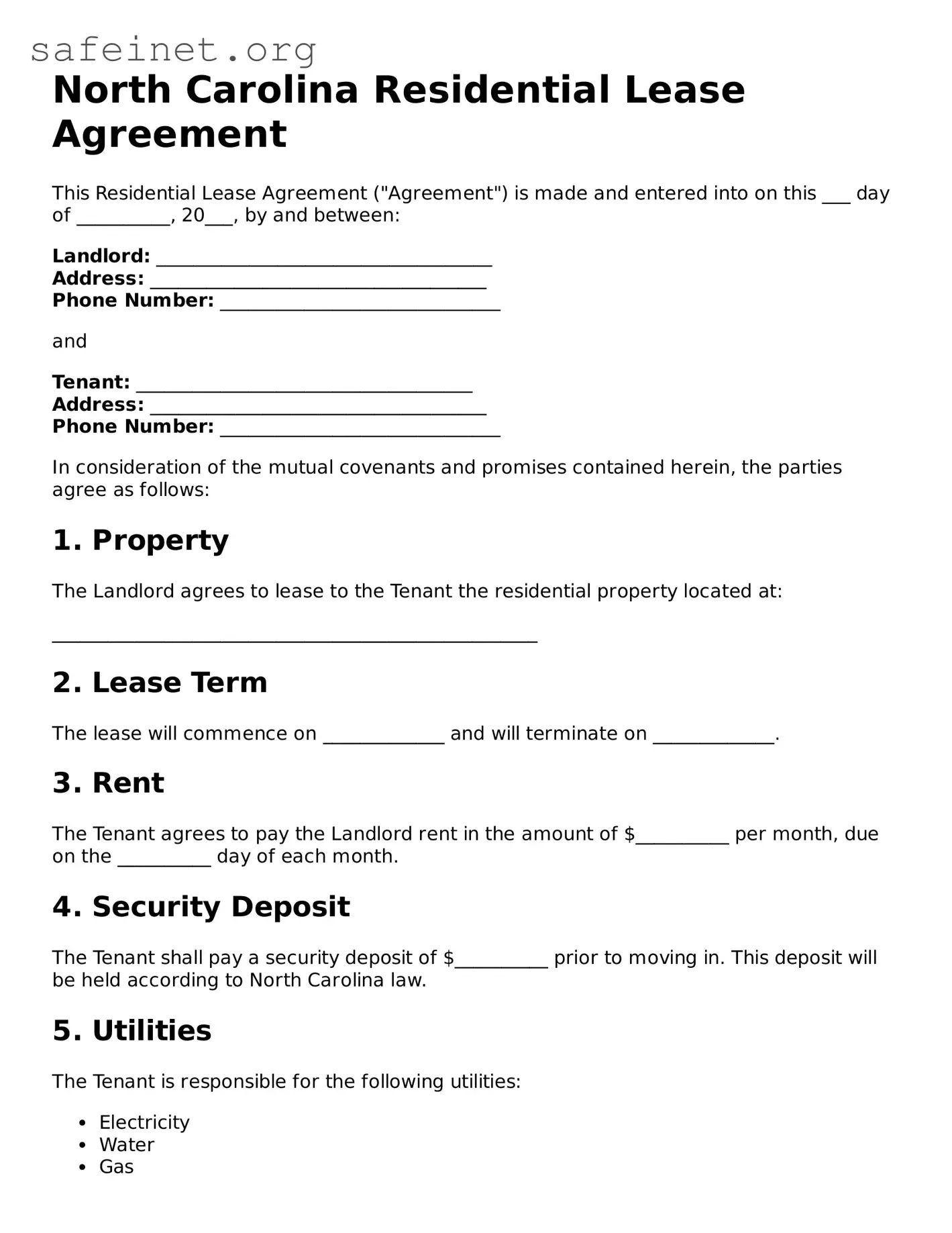What is a North Carolina Residential Lease Agreement?
A North Carolina Residential Lease Agreement is a legally binding document that outlines the terms and conditions between a landlord and a tenant for a residential property. This agreement specifies the rights and responsibilities of each party, including the rental amount, duration of the lease, and maintenance obligations.
What information should be included in the lease agreement?
The lease agreement should include vital details such as the names of the landlord and tenant, the address of the rental property, the duration of the lease, the rental price, and the payment schedule. It may also include provisions related to security deposits, maintenance responsibilities, and rules regarding pets or subleasing.
Is it necessary to have a written lease agreement?
While verbal agreements may be legally binding in North Carolina, having a written lease is highly recommended. A written lease provides clarity and serves as evidence in case of disputes. It minimizes misunderstandings by clearly outlining each party's obligations and expectations.
What is the typical length of a residential lease in North Carolina?
Residential leases in North Carolina can vary widely in length. Common durations include one year and month-to-month agreements. However, tenants and landlords may negotiate terms that suit their needs, as long as both parties agree to the terms in writing.
What happens if a tenant wants to terminate the lease early?
If a tenant wishes to terminate the lease before it expires, they may be subject to lease termination clauses outlined in the agreement. Generally, tenants may need to provide notice to the landlord and possibly pay a penalty. It is important to review the specific terms in the lease before making any decisions.
Can landlords increase the rent during the lease term?
Typically, landlords cannot increase rent during the term of a fixed lease agreement unless the lease specifically allows for increases. For month-to-month agreements, landlords may raise the rent but usually must provide written notice within a specified timeframe, often 30 days.
What is the security deposit, and how should it be handled?
A security deposit is a monetary amount collected by the landlord to cover damages or unpaid rent. In North Carolina, the security deposit must be returned to the tenant within 30 days after the lease ends, accounting for any necessary deductions. Documentation of the property’s condition should be kept to justify any deductions from the deposit.
Are tenants allowed to make alterations to the rental property?
Tenants may not alter the property without obtaining permission from the landlord. Changes can include painting walls or installing fixtures. These alterations must be clearly outlined in the lease agreement to avoid disputes. Written consent should be obtained for any changes made to the property.
What recourse do tenants have if the landlord does not uphold their responsibilities?
If a landlord fails to fulfill their obligations, such as completing necessary repairs, tenants have several options. They can communicate with the landlord to resolve the issue, formally notify them in writing, or, if necessary, seek legal advice. In extreme cases, tenants may choose to withhold rent until the issues are addressed, but this should be approached with caution and based on legal guidance.
